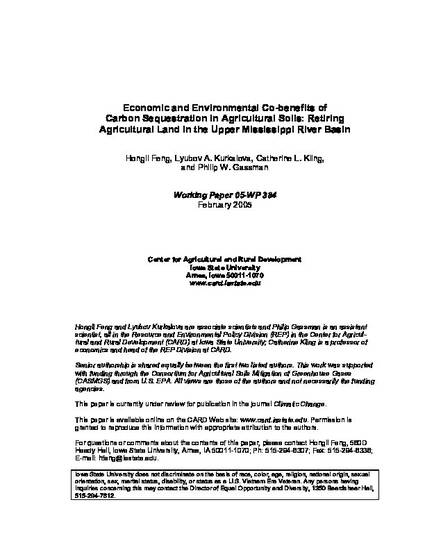
This study investigates the carbon sequestration potential and co-benefits from policies aimed at retiring agricultural land in the Upper Mississippi River Basin, a large, heavily agricultural area. In addition to empirically measuring environmental co-benefits, we also compute economic transfers, which have sometimes been referred to as a co-benefit. Very little empirical work measuring the potential magnitude of these transfers has previously been undertaken. We compare and contrast alternative targeting schemes. We find that there are considerable amount of co-benefits and transfers and that the geographic distribution of co-benefits and transfers varies significantly with the specific benefit targeted. This implies that policy design related to targeting can have very important implications for both environmental conditions and income distributions in sub-regions. Issues related to policy design in the presence of co-benefits are considered.
Available at: http://works.bepress.com/hongli-hennessy/36/

This is a working paper of an article from Climatic Change 80 (2007): 91, doi:10.1007/s10584-006-9143-1